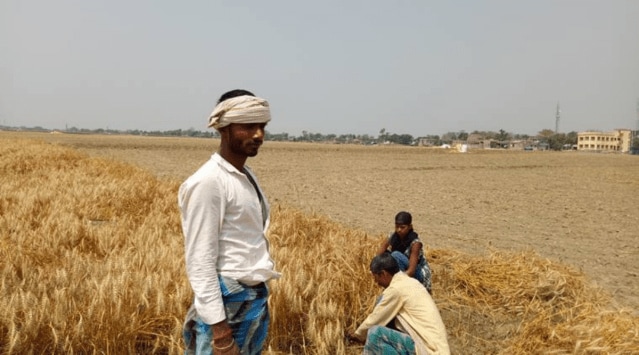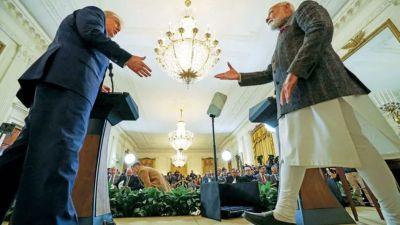The central government’s refusal to allow the states to implement the Beed model for the Pradhan Mantri Fasal Bima Yogna (PMFBY) has put the government in a fix on how to tweak the scheme as most suitable for Maharashtra.
Intense deliberation about the scheme has failed to produce any concrete result due to which the official government resolution (GR) for implementation of the scheme is yet to be announced though kharif sowing is in full swing.

During his meeting with Prime Minister Narendra Modi, Chief Minister Uddhav Thackeray had sought permission to implement the Beed model for the crop insurance scheme. The model, named after the district where this was tried for the first time during the kharif season of 2020-21, involves insurance companies providing a cover of 110 per cent of the premium collected.
Story continues below this ad
The state government would have to bear the losses in cases the payouts exceeds the 110-per cent figure, and in case the payouts are lesser than 110 per cent, the insurance companies returns 80 per cent of the premium collected back to the state. The model curtails the profits of the insurance company and allows the state exchequer access to the funds, which otherwise would have gone to the insurance companies.
 PMFBY is the flagship program of the state government wherein the state and the Centre bear the maximum amount of the premium, while farmers bear just a small portion of it. The insurance cover shields farmers from crop loss in case of climatic events.
PMFBY is the flagship program of the state government wherein the state and the Centre bear the maximum amount of the premium, while farmers bear just a small portion of it. The insurance cover shields farmers from crop loss in case of climatic events.
Farmers have embraced the scheme given the surety of payouts in case of crop loss, but there have been repeated criticism about the program adding to the profit of the insurance companies. The Centre had made the scheme optional for all farmers, but most states have wanted more control in its implementation.
In case of 2020-21, agriculture officers in Maharashtra said the companies had collected premium worth Rs 7,000 crore and payouts had come to around Rs 1,000 crore. However, some of the companies had refused to give the payout as the second installment of the premium was not paid to them.
Story continues below this ad
Agriculture Commissioner Dheeraj Kumar had issued notices to companies that had refused to pay compensation as the second installment of the premium was not transferred to them.
In response, the companies had approached the Centre that agreed to their reasoning as the existing guidelines state that the state governments need to transfer both the installments before the payouts are made. “The plea by the companies is not judicious as the first installment paid was much more than the payouts,” the officers said.
The Beed model allows the states to get a return of unused premium. However, the Centre has refused to allow the states to implement it for the upcoming season. States like Telangana, Andhra Pradesh, Gujarat, Madhya Pradesh and West Bengal have also either exited the scheme or asked for a revision in it.
For Maharashtra, the fact that the Centre bears around 50 per cent of the premium is a hurdle towards personalising the scheme.
Story continues below this ad
Intense deliberations are on at the state level on how best to implement the scheme. Kumar said they are yet to receive the scheme’s GR, and once received, the same farmers would be enrolled.










